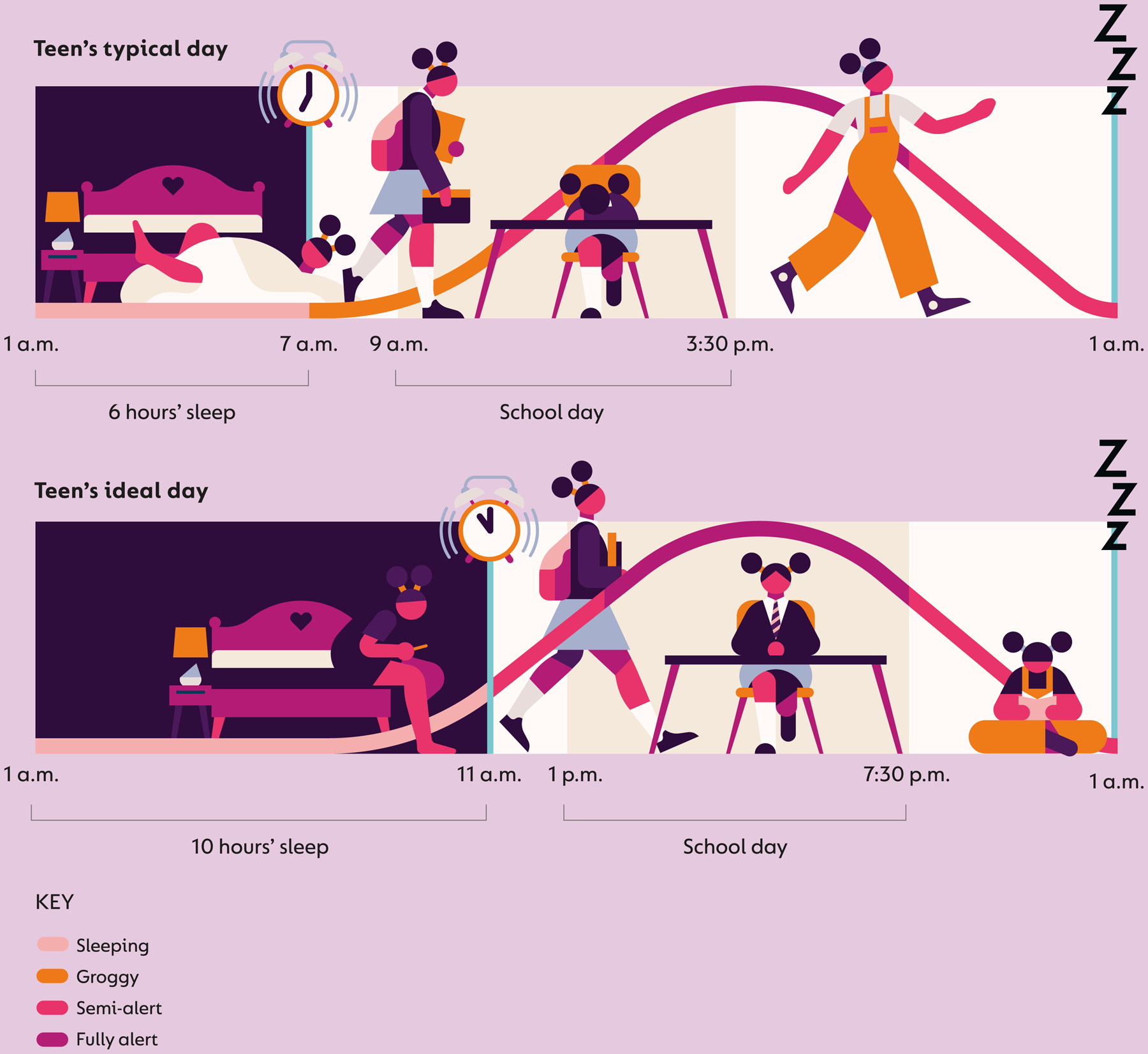g Life stages g CONTENTS
Does the school day fit in with my teenager’s sleep needs?
Anyone with a teenager will testify to the daily struggle of waking them up for school, but is this sleepy stupor and inability to focus in the mornings simply a matter of teenage laziness, or something more?
During puberty, not only are teens experiencing a hormonal storm, but they may also be suffering from chronic sleep deprivation. It’s not that teens are inherently lazy; their tendency to drift off in midmorning classes is partly down to them being denied their natural sleeping routine, which differs from that of children and adults.
BODY CLOCK SHIFT
When puberty hits, the circadian rhythm jumps forward by around two hours, likely due to growth- and sex-hormone surges, so production of melatonin (the sleepiness hormone) occurs later in the day. This means that expecting a teen to sleep at 11 p.m. is like an adult being sent to bed at 8 p.m. And for teens, rising at 7 a.m. is as painful as if an adult were hauled out of bed at 4 a.m.
Because they are not yet ready for sleep, many teens hang out online late into the night, further stimulating their brain and keeping them awake. This leads to “social jet lag,” with teens getting less sleep on school days and sleeping longer on weekends, making them even less able to meet the demands of their school day.
A later school start and finish time would benefit teens, and of the schools that have tried this, all report improved grades and student engagement, as well as a drop in lateness and absences. Getting your teen’s school to try this might not be possible, but you can help lessen daytime sleepiness—see below. When teens reach adulthood, the biological clock shifts back and this built-in time lag gradually recedes.
Sleep later, learn better
Each graph charts a teen’s daily alertness levels. A later school start means they are alert for the whole school day, but on a typical schedule, their alertness peaks just as school ends.

n Double-tap image to read the labels
Life Stages | Does the school day fit in with my teenager’s sleep needs?
SUPPORTING A SLEEPY TEEN
• For younger teens, keep digital devices out of their room at night. If they are older, turning off the household WiFi at a set time each night shows you are willing to stick to the rules, too! Suggest alternative evening activities like reading or listening to a podcast, which are relaxing and help keep sleep-inhibiting levels of the stress hormone cortisol down.
• Exposure to bright light in the morning and low light at night can help shift your teen’s sleep schedule back, so consider a dimmer on their bedroom light, or try using an orange or red bulb in their bedside lamp.
